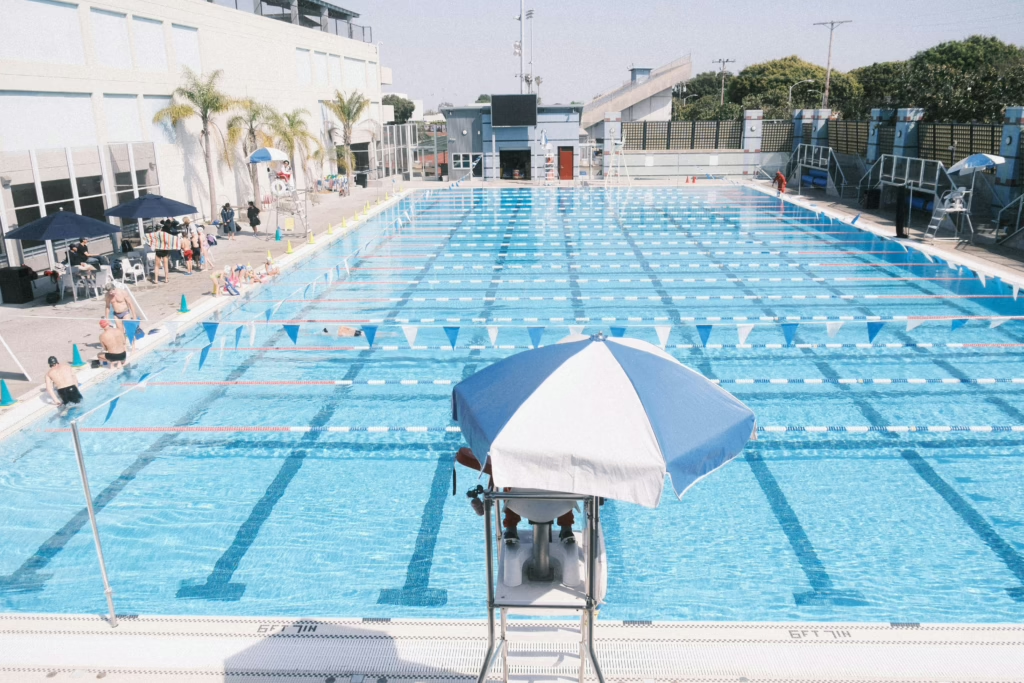Have you ever looked at your beautiful backyard oasis and wondered what’s happening beneath the surface? While most pool owners focus on water chemistry and skimming leaves, there’s an unsung hero working tirelessly below: your pool drain system. This often-overlooked component is actually the lifeline of your pool’s health and longevity.
If you’ve been searching for “pool drain cleaning near me,” you’re already on the right track to better pool maintenance. Finding a reliable and professional service provider can make all the difference in extending your pool’s life and reducing long-term costs. Here’s your comprehensive guide to understanding what to look for, the services available, and how to choose the best option for your pool care needs.
In San Diego’s year-round swimming climate, proper pool maintenance isn’t just about aesthetics—it’s about creating a safe, clean environment for you and your family to enjoy. Let’s dive into the world of pool drains and discover why keeping them clean should be at the top of your pool maintenance checklist.
Understanding Your Pool’s Drain System
The Vital Components Working Together
Your pool’s circulation system is like the cardiovascular system of your backyard oasis, with several key components working in harmony:
Main Drains: These workhorses sit at the deepest points of your pool, constantly pulling water from the bottom. Think of them as your pool’s vacuum cleaners, preventing sediment from building up by directing it through your filtration system.
Skimmers: Positioned strategically at the water’s surface, skimmers are your first line of defense against leaves, bugs, and sunscreen residue. They capture floating debris before it has a chance to sink, keeping your main drains from getting overwhelmed.
Return Lines: After your water goes through the filtration process, return lines push clean water back into your pool through jets. This creates circulation that helps distribute chemicals evenly and keeps water moving—a crucial factor in preventing algae growth.
How Water Actually Circulates
Your pool pump is the heart of this system, creating the suction that pulls water from both the main drains and skimmers. This water then travels through the filter, where impurities are trapped and removed. Finally, the clean water returns to your pool, completing a cycle that ideally happens multiple times each day. This continuous movement is what keeps your pool clear, balanced, and inviting.
Why Regular Pool Drain Cleaning Isn’t Optional
1. The Problem with Debris Accumulation
Even with the best preventative measures, your pool drains will inevitably catch debris. Leaves, dirt, hair, sand, and countless other particles find their way into your drain system over time. When this happens:
- Water flow becomes restricted, forcing your pump to work harder
- Energy consumption increases, raising your utility bills
- Your pump experiences unnecessary wear and tear, potentially shortening its lifespan
Regular cleaning prevents these issues by removing obstructions before they become problematic, keeping water flowing efficiently through your entire system.
2. The Hidden Danger: Bacteria and Algae Growth
When drains become clogged, something more concerning happens: water movement slows, creating pockets of stagnant water. These areas become perfect breeding grounds for bacteria and algae. In San Diego’s warm climate, algae can spread rapidly when given the opportunity, turning your crystal-clear pool green in just days.
By maintaining clean drains, you ensure proper water circulation throughout your pool, minimizing the opportunity for unwanted microorganisms to establish themselves in your swimming environment.
3. Protecting Your Investment
Let’s talk dollars and cents: your pool represents a significant investment in your property. The pump and filtration system alone can cost thousands to replace. When drains become clogged, these components are forced to work overtime, significantly increasing wear.
Think of regular drain cleaning as preventative maintenance—similar to changing your car’s oil. A small investment now can prevent costly repairs later, protecting both your equipment and your wallet.
How Often Should You Clean Your Pool Drains?
Finding Your Pool’s Maintenance Sweet Spot
The ideal cleaning schedule depends on several factors unique to your situation:
- For typical residential pools: A thorough drain cleaning every 1-2 months usually suffices
- For high-traffic pools: Monthly cleaning is recommended for pools that see heavy use
- For pools near trees or gardens: More frequent cleaning may be necessary during certain seasons
- For year-round pools in San Diego: Consistent maintenance is critical due to extended use
The best approach is to observe your pool’s specific patterns. If you notice debris building up quickly or circulation seeming sluggish, it might be time to schedule a cleaning, regardless of when your last service occurred.
DIY vs. Professional Pool Drain Cleaning
The Limitations of DIY Approaches
While skimming surface debris and performing basic maintenance is manageable for most pool owners, drain cleaning presents unique challenges:
- Consumer-grade tools often can’t reach deep into drain systems
- Without proper training, it’s difficult to know if you’ve addressed all potential blockages
- DIY methods risk damaging delicate components if performed incorrectly
I’m all for taking care of what you can yourself, but when it comes to your drain system, there are clear advantages to professional service.
The Professional Advantage
Professional pool technicians bring specialized equipment and expertise that makes a significant difference:
- High-powered vacuum systems can remove debris from deep within your drain lines
- Trained eyes can spot potential issues before they become major problems
- Professional-grade cleaning ensures complete removal of buildup, not just the surface debris
- Experts can inspect your entire circulation system while cleaning drains, identifying other maintenance needs
Think of professional drain cleaning as an investment in your pool’s longevity rather than an expense. The thoroughness of professional service often pays for itself through reduced repair costs and extended equipment life.
Warning Signs Your Pool Drains Need Attention
Recognizing the Red Flags
Your pool will often give you clear signals when drains need cleaning. Watch for these telltale signs:
- Reduced water movement: If your water seems unusually still or your jets seem less powerful
- Strange noises: Gurgling, sucking, or whistling sounds coming from drains or your pump
- Unpleasant odors: Musty or chemical smells that persist despite balanced water chemistry
- Debris settling: If you notice dirt and debris collecting on your pool floor instead of being filtered out
- Pump struggling: If your pump seems to be working harder than usual or making unusual noises
Catching these signs early can prevent more serious issues and keep your maintenance costs manageable.
The Benefits of Maintaining Clean Pool Drains
Crystal Clear Water Quality
Clean drains allow your filtration system to work as designed, removing particles and contaminants efficiently. This results in:
- Water that sparkles with clarity
- More effective distribution of pool chemicals
- Reduced need for shock treatments and algaecides
- A more comfortable and safe swimming environment
The difference between a pool with proper circulation and one with compromised flow is immediately noticeable to swimmers and observers alike.
Lower Energy Costs
Did you know that a clogged drain system can increase your energy consumption by 30% or more? When water flows freely, your pump doesn’t have to work as hard to maintain circulation. This translates directly to lower electricity bills—something we can all appreciate in today’s energy market.
Many pool owners find that regular professional drain cleaning actually pays for itself through reduced utility costs alone, not to mention the savings on potential repairs.
Extended Equipment Life
Pool equipment isn’t cheap to replace. Your pump, filter, heater, and other components will last significantly longer when they’re operating under optimal conditions. Clean drains reduce strain on all these systems, potentially adding years to their operational life.
Consider professional drain cleaning as preventative healthcare for your pool—addressing small issues before they can develop into system-wide problems.
Finding Professional Pool Drain Cleaning Near Me
What to Look for in a Service Provider
When searching for professional pool maintenance in San Diego, consider these key factors:
- Experience: Look for companies with extensive experience in pool maintenance
- Specialized equipment: Ensure they have the proper tools for thorough drain cleaning
- Reviews and reputation: Check online reviews and ask for references
- Response time: In San Diego’s year-round swimming climate, timely service is essential
- Comprehensive service: The best providers will check your entire circulation system, not just the drains
PoolLogic San Diego offers all these qualities, providing thorough drain cleaning services with professionalism and attention to detail.
Frequently Asked Questions:
1. How often should I clean my pool drains?
For most residential pools, every 1-2 months is sufficient. However, pools with heavy use or environmental factors like nearby trees may require more frequent cleaning.
2. What happens if I don’t clean my pool drains regularly?
Neglected drains can lead to poor circulation, increased bacteria and algae growth, higher energy costs, and potential damage to expensive pool equipment.
3. Is it safe to clean pool drains myself?
While basic maintenance is manageable, professional cleaning is recommended for thorough results and to avoid potential damage to your system.
4. Do I need to drain my pool to clean the drains?
No, professional services can typically clean drains thoroughly without draining your pool.
5. How much does professional drain cleaning cost?
Costs vary based on pool size and condition, but most residential services range from $100-200—a small price compared to potential repair costs from neglected maintenance.
6. How can I prevent clogs between professional cleanings?
Regular skimming, using a pool cover when not in use, and prompt removal of visible debris can help maintain cleaner drains between professional services.
7. How long does professional drain cleaning take?
A thorough cleaning typically takes 1-2 hours, depending on your pool’s size and the condition of your drains.
Final Thoughts
Your pool’s drain system may be out of sight, but it should never be out of mind. Regular professional cleaning ensures optimal circulation, clearer water, lower operating costs, and extended equipment life. The investment in proper maintenance pays dividends in both the short and long term.
If you’re looking for dependable pool drain cleaning near me, PoolLogic San Diego offers comprehensive services tailored to your specific needs. With our expert technicians and specialized equipment, we can ensure your pool’s circulation system operates at peak efficiency year-round. Contact us today to schedule your next cleaning and enjoy a pristine pool all year round.
Setting up your first appointment takes just 5 minutes, but the benefits to your pool’s health will last for months. Ready for better pool care? Your clean, clear, energy-efficient pool is just a phone call away.



